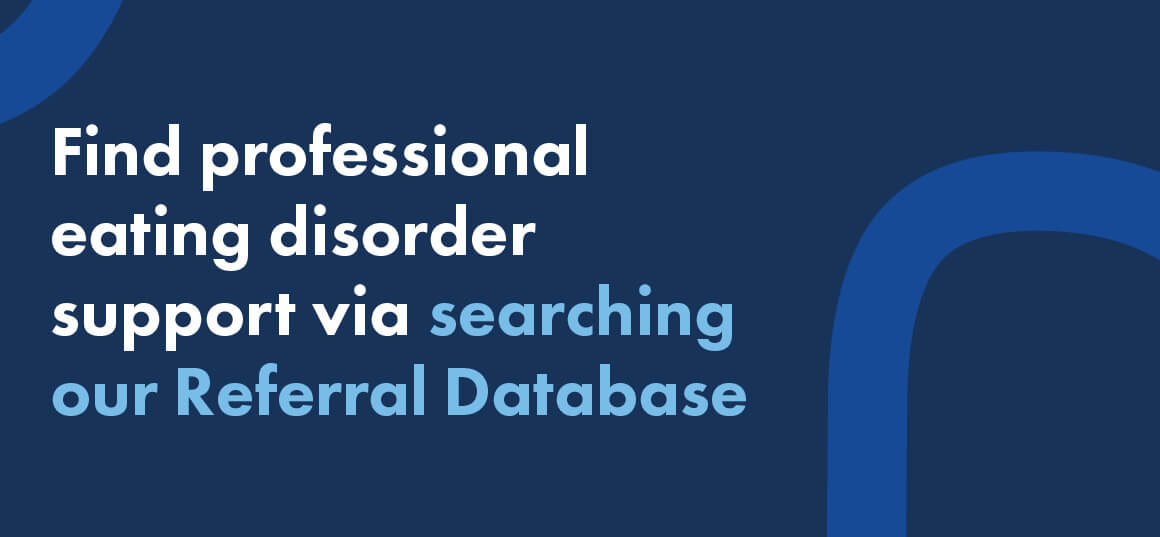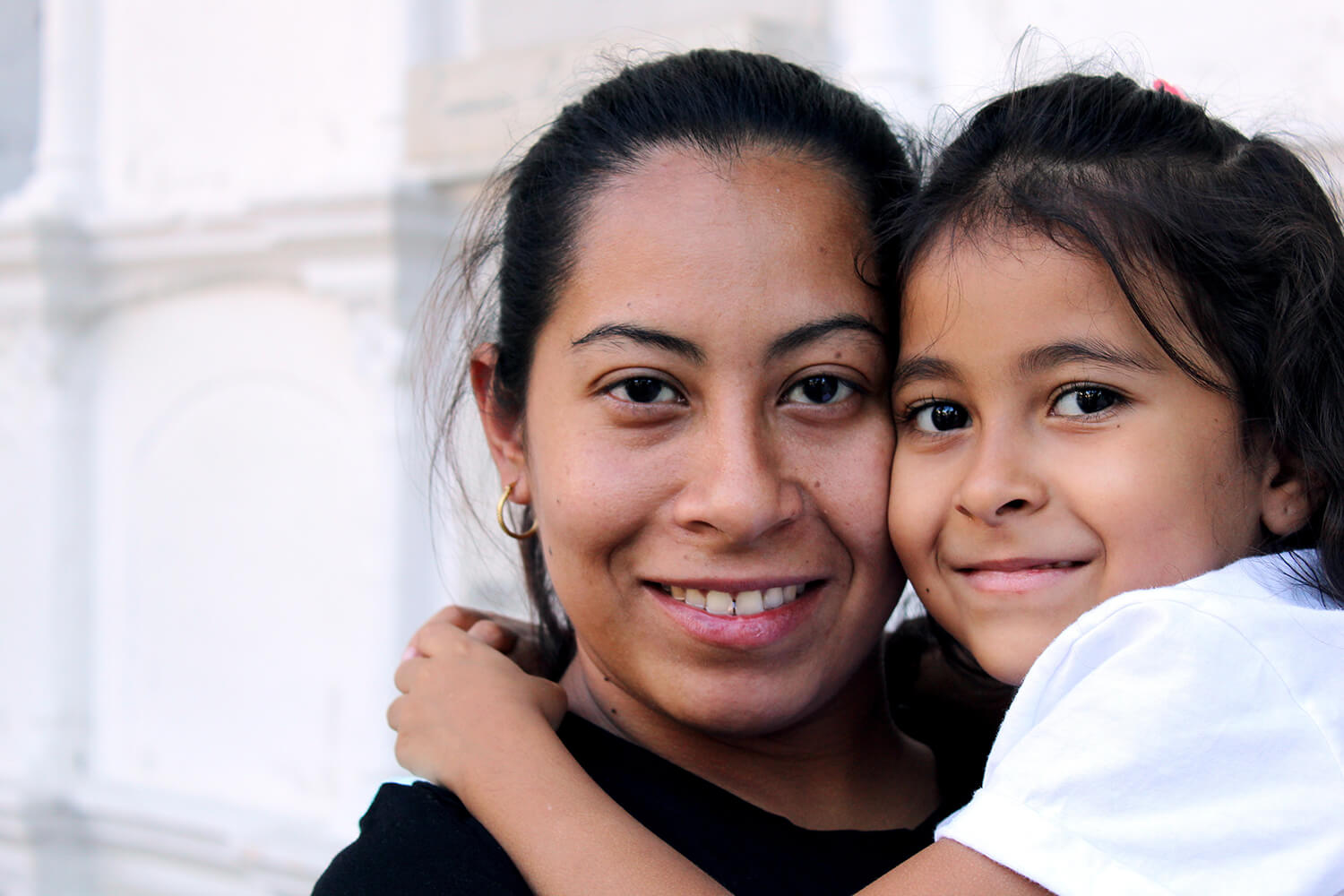What does quality eating disorder treatment look like for a person in a larger body?
This can be a difficult question to answer if you have not received quality health care. Like many people in a larger body, I have not always received quality health care.
The pandemic has brought a lot of our society’s inequities into focus, and weight stigma is no exception. When primary health care services moved to telehealth, I was shocked by the difference in response from my doctors.
I noticed when I was not physically in front of them, but instead speaking about my complaint over the phone, I received a more relevant response. On the phone, the GP was just responding to the content of my complaint, not influenced by their own prejudices attached to my size.
Prior to finding my current GP, the last doctor I saw represented everything I had come to expect. Our appointment was a hurried ten minutes and she barely looked at me. She took some basic metrics (weight, height, blood pressure) and then advised me to lose weight regardless of my reason for being there.
I tried to explain that I was in treatment for an eating disorder. Her immediate response was, “but, have you tried exercise?” It sounds so simple. The shame burns when you sit in front of someone talking to you like you’re completely incapable of or uninterested in doing something so simple and basic. In her presence, I felt myself shrink – my shoulders turned inwards and down, my arms wrapped in tightly around my body, my legs squeezed together and I bowed my head. Anything to take up less space.
And, that was primary health, how about tertiary? Prior to finding my current psychiatrist, the last psychiatrist I saw was also fairly typical. Within a few consultations, she increased my anti-depressant medication to the maximum dose. And then when I did not have favourable outcomes, she mentioned my weight. It is important to note, I had never mentioned my weight – she brought it up.
She said something to the effect of, “maybe you feel depressed because of your larger size. I have known patients who have felt less depressed after having gastric bypass surgery. Do you think your weight may be the problem?” Again, I felt incredible burning shame and I was likely speechless. I eventually summoned the courage to make a complaint about her conduct, and to her credit she did write me a genuine apology and took the experience as “learning”.
Health At Every Size Australia describes “weight stigma” as “the negative interpersonal consequences of weight bias in medical and healthcare settings”.
When I first read about weight stigma, I finally saw my experience put into words. Visiting doctors had become so difficult for me that I would have a physical stress response in environments that felt like doctors’ surgeries.
At one point, in the midst of a depressive episode, I ran out of my prescription medicine and just endured the side effects. There was another time that I let an uncomfortable rash on my abdomen go untreated for months because I did not want to lift my shirt in front of a doctor.
I mentioned this to a mental health professional I was working with at the time, and she asked if I was feeling “self destructive” when making these choices. I felt affronted by this question, and I am deeply opposed to that term. I explained that when I have no energy left, I can’t summon the strength to manage the shaming I will receive from a GP. “Self-destructive” behaviour is actually self-protective, if you place it into its context.
The ‘gold standard’ treatment for eating disorders currently is Enhanced Cognitive Behaviour Therapy or CBT-E.
I have many grievances with this mode of therapy but for the purposes of time, I will focus on one aspect. As the name suggests, a focus of this treatment is ‘cognition’, or ‘thoughts’ in plain English. In treatment, you are invited to reflect on possible ‘cognitive distortions’ or ‘thinking errors’ you might make in relation to yourself and the world. Treatment may involve re-appraising your own beliefs about your size and how size relates to your experience of the world.
For people in larger bodies, this process can often invalidate your experience of weight stigma, or in worse cases reinforce it. The primary assumption of CBT-E is that my thoughts are the problem. This neglects to consider the larger social and cultural issues, and especially neglects the specific and real problem of weight bias in healthcare.
From theory to practice, ‘therapeutic’ responses to people living in larger bodies can be excruciating.
Healthcare professionals are often not educated in how weight stigma intersects with the experience of an eating disorder, and therefore are often not in a position to judge my responses to it.
I can identify three unhelpful approaches you may receive when seeking eating disorder treatment while living in a larger body.
The first is to dismiss that weight stigma is a real issue affecting your life, as was the case when a mental health practitioner appraised my avoidance of the GP as “self destructive”.
The second is to acknowledge weight stigma but in a way which reinforces it. This occurred when a psychiatrist suggested my mental health symptoms would be alleviated by weight loss. The very worse case is where the healthcare professional applies weight bias without any conscious thought or reflection, and in doing so, erases the experience of the eating disorder altogether.
As I mentioned above, one GP’s judgment was so coloured by weight bias she just simply could not believe a person in a larger body would have an eating disorder.
Now, I know I have painted a pretty dark picture, but I want to assure you that this is not always the case when a person living in a larger body pursues treatment for an eating disorder. Unfortunately, it is so often the case that it can distort the expectations of the service consumer and that only contributes to the problem. I have been purposeful in breaking down what is not appropriate health care so that we can then clearly define what is appropriate, respectful and effective.
I want you to understand that better treatment exists, and you should expect better. You deserve better.
I did find a fantastic treatment team, but I want to focus on my GP. Unfortunately, some people with an eating disorder, those who live in larger bodies and those who don’t, may have unhelpful, unsafe and inappropriate experiences with GPs.
It took me about 2 years and a lot of effort to find a GP who understood eating disorders. What’s more, I eventually found one who was conscious and reflective about weight stigma in healthcare. Jackpot! Because of this, she uses a different lens to evaluate health.
She understands that a person’s eating behaviour is enmeshed in their life experience, the society and culture they live in, and their psychological state. When I first met my current GP, the first thing I noticed was that she turned away from her computer and looked at me. She took time over two extended sessions to understand my situation and write a holistic health plan. I ended up crying a lot, telling her my experiences of the healthcare system to date.
She paused and looked me in the eyes and apologised on behalf of doctors everywhere. She explained her view of health care, and said I have a right to receive quality care regardless of my size.
I had received thousands of hours of therapy by this stage in my life, living with complex mental health issues, but an apology from my GP was the single experience that helped me move past the shame of living with weight stigma. I could sit with a psychologist and talk about my thoughts all day, but the experience of a healthcare professional validating that what is causing me distress actually exists – that is powerful, and that is life changing.
Following on from my experience with my GP, I have had the privilege to engage in advocacy work around treatment for eating disorders. I have met with others who have had similar experiences as me. I wish I could acknowledge everyone that has shaped my thinking here, but I did not come to these conclusions alone.
My healing experience with my GP and others in the eating disorders community helped me to understand how weight stigma had affected my life. I realised that the times I didn’t pursue treatment, on some level I genuinely felt that I should suffer without care. I had come to believe so much about myself based on the way I was treated. I had come to believe that I “don’t care about my health”, I don’t “make an effort” to look after my body, and therefore when things go wrong, it is on me.
Doctors had already moralised my choices about food and exercise before they had even made an effort to understand what those choices were. And I knew they had already judged those choices as the wrong choices. Once I could disengage with that unhelpful and destructive narrative, I had more space to choose what I did next.
Tips for recovery
- As I have said in previous posts, my biggest piece of advice for people seeking treatment for eating disorders is to be ruthless and unapologetic in selecting your team. It can be so difficult to find the right people, with the right training and the right attitude, in this space. And this is even harder when you live in regional or remote areas. What I would say is, there are health professionals who will understand. My GP is proof of this. Keep going, and don’t be afraid to sack someone if they aren’t getting it right.
- Learn about your rights in the healthcare system. I have gone through the process of making complaints to the Health Care Complaints Commission, and while you don’t always receive a favourable outcome (especially if it becomes a he-said-she-said), the process itself can be healing. Making any kind of complaint intrinsically tells both you and the world that you deserve better. I have found that it will take multiple experiences of asserting this right to actually internalise it. A positive feedback loop can potentially begin once you assert your rights out loud in the world.
- Read about weight stigma and fatphobia. There are resources on the Butterfly website, Health at Every Size website and other places. I know that for me, seeing someone put the words onto the shame I was feeling was so incredibly helpful. What had been this visceral, burning, uncomfortable experience of shrinking into myself was suddenly so much more manageable and understandable. Shame thrives in silence. Words are my weapon against shame.
- I read about these concepts, and then I write about my experience. Read and reflect in your thoughts in a way which feels right for you, it may be writing or drawing or singing, or anything!
- My final piece of advice and hope: Know that there are people working to change this. My GP is one of many healthcare professionals who chooses to take in student doctors, and she educates them about identifying their own weight bias and being reflective of this in practice. She is an example among so many wonderful people who are trying to change our healthcare system.
The Butterfly Foundation too continues to advocate for a Health at Any Size model, and their activity over Weight Stigma Awareness Week has been so validating for so many of us living in larger bodies. There is an enormous amount of work to be done to educate the healthcare community, and to develop safe and effective eating disorder treatment protocols for people living in larger bodies. But, I am positive that our healthcare is slowly improving for the better.
Written by Butterfly Collective member, Monica Catherine. Monica has previously written for Butterfly on other topics related to living with an eating disorder in a larger body:
- It was never about the food: understanding me and my diagnosis of Binge Eating Disorder
- Eating on ‘auto-pilot’ in the context of complex trauma




















